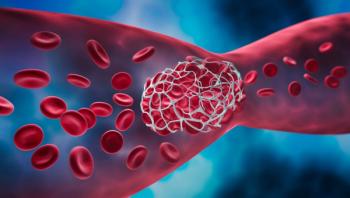
Diabetes and HIV May Increase Risk of Hypertension in People with Hemophilia
Findings suggest that screening people with hemophilia for diabetes and hypertension might have benefits.
A study published in the journal
Researchers from the University of California, San Diego conducted a retrospective study examining the clinical records of 691 men with hemophilia, ages 18 to 79 years, who were seen at hemophilia treatment centers across North America between 2003 and 2014. They were compared with race- and age-matched men in the general population using data from U.S. National Health and Nutrition Examination Surveys (NHANES) and an outpatient clinic at the Veterans Affairs Medical Center in San Diego.
Each cohort was divided into two groups — a group without diabetes, HIV, or hepatitis C infection and another group with diabetes or a history of HIV or hepatitis C infection.
Researchers found that hypertension was more common among people with hemophilia compared with the general and veteran populations (50% versus 25.5% and 41.2%). Diabetes was less prevalent in the hemophilia group than in the other two groups (7.8% versus 12.6% and 13.7%).
When comparing all the men without diabetes or HIV or hepatitis infection, the investigators found that the group with hemophilia had the highest rate of hypertension (37%), followed by the group of veterans (34%) and the general population (20%). In the groups with diabetes or a history of a viral infection, 57% of men with hemophilia had hypertension, while 77% of veterans and 53% of NHANES participants had high blood pressure.
Although men with hemophilia had the lowest rate of diabetes among the three groups, the researchers discovered that diabetes had the most significant impact on increasing the risk of hypertension. They found that people with hemophilia who had diabetes or a history of HIV had a higher risk of hypertension compared with hemophilia patients who either had no virus infection or were only infected with hepatitis C. The same association was not noted in the groups without hemophilia.
The authors commented that these findings should highlight the need for early hypertension and diabetes screening in people with hemophilia to adequately control these conditions and prevent associated complications and mortality. This is especially important given that new and developing hemophilia treatments the life expectancy of people with hemophilia.
Newsletter
Get the latest industry news, event updates, and more from Managed healthcare Executive.























